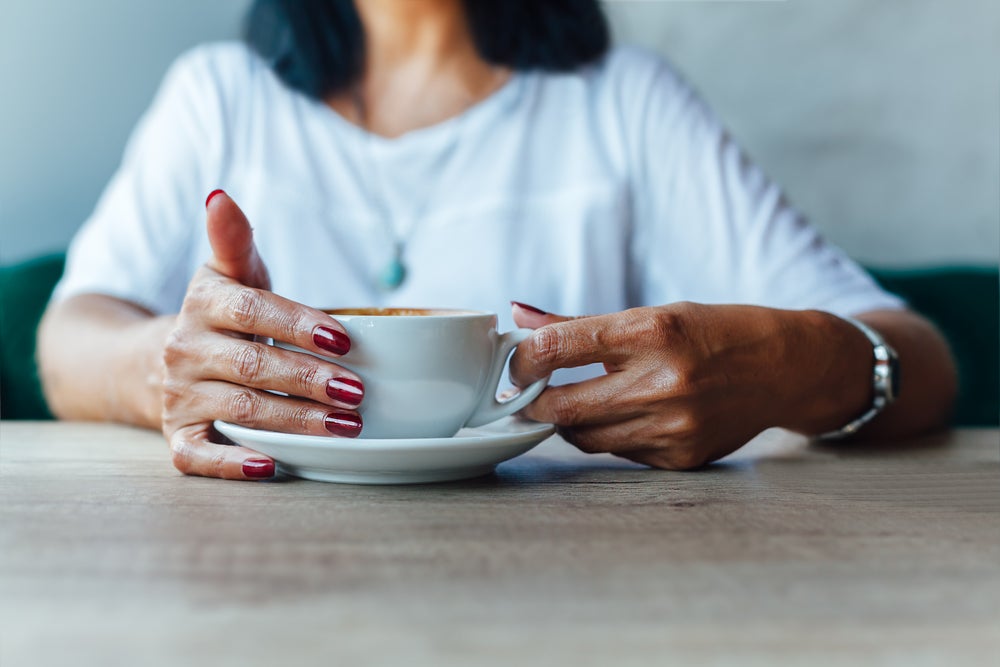Insomnia During Menopause? Ditch These 8 Culprits
It’s 2:00 in the morning and you’re awake. Again. Since menopause has arrived, you’ve been seeing far more moonlight than you ever wanted. The evidence is in the mirror. There are dark circles beneath your puffy eyes, your skin has lost its luster, and you’ve lost your sparkle. Face it, you’re exhausted.
Menopause play games with your sleep cycle, making it hard to get a good night’s sleep. But there could be other culprits as well.
If you’re having trouble sleeping during menopause, your first steps should be to keep a sleep diary and talk to your doctor. The notes in your diary can help you see if any of the following culprits are keeping you from getting some sleep:
Caffeine
Did you know the effects of caffeine can last for several hours? That means your afternoon pick-me-up soda is also keeping you awake at night. Be aware of hidden caffeine, too. It can be found in chocolate, energy drinks, some protein bars, a few pain relievers, weight loss pills, and even decaf coffee.
Alcohol
If alcohol makes you drowsy, you might be tempted to use it as a nightcap before bed. But wait. That could backfire on you. While alcohol might let you fall asleep, it doesn’t let you get quality sleep. It disrupts your sleep patterns, including rapid eye movement (REM) sleep – the mentally restorative stage of sleep. You’re also more prone to snoring, sleep walking, and talking in your sleep if you rely on alcohol as a sleep aid. Since it’s a diuretic, it can also increase your need for bathroom visits during the night.
Stress
Stress levels can increase during menopause for a number of reasons. Whatever the cause, stress can steal your sleep by making it hard to fall asleep and stay asleep. Without enough sleep, your stress level increases further. You become stuck in a vicious cycle of sleep deprivation. Learning effective ways to manage stress can help you break that cycle and get some much needed zzz’s.
Smoking
Your doctor has told you for years to quit smoking. It’s time to buckle down and do it. Because nicotine is a stimulant, it can keep you awake when you should be sleeping. It also increases your risk for sleep apnea, disrupts your sleep patterns, and causes you to wake frequently during the night. Talk to your doctor today about help kicking your tobacco habit.
Medications
If you are taking any medications or supplements, make a list of them and discuss them with your doctor or pharmacist. Blood pressure medications, antidepressants, cold medications, decongestants, and many other medications can disrupt sleep or cause insomnia.
Naps
If you feel exhausted during the day, it’s easy to lie down on the couch for a nap. And that’s okay – if it’s one nap and it’s no more than 20 minutes. Longer naps end up keeping you awake at night. Instead of napping during the day, give yourself a pick me up by going for a walk, drinking a glass of ice water, eating a healthy snack, or engaging in conversation.
Technology
Your electronic devices can be interfering with your sleep, especially when using them before bed. The lights suppress production of melatonin, the hormone that controls your sleep and wake cycles. The gadgets also stimulate your brain so it’s not ready to close down for rest. At least 30 minutes before bed, turn off the TV, put your phone and tablet away, and find more sleep friendly ways to wind down and relax.
Lack of Routine
If you don’t have a set sleep routine, you’re making it harder to get a good night’s rest. Your brain and body need a set routine to let them know when it’s time to wind down or wind up. Creating a bedtime and morning routine that you follow religiously keeps your inner clock on the right cycle for sleeping and waking.
This content was written by staff of HysterSisters.com by non-medical professionals based on discussions, resources and input from other patients for the purpose of patient-to-patient support. Reprinted with permission: Insomnia During Menopause? Ditch These 8 Culprits







